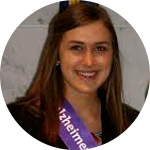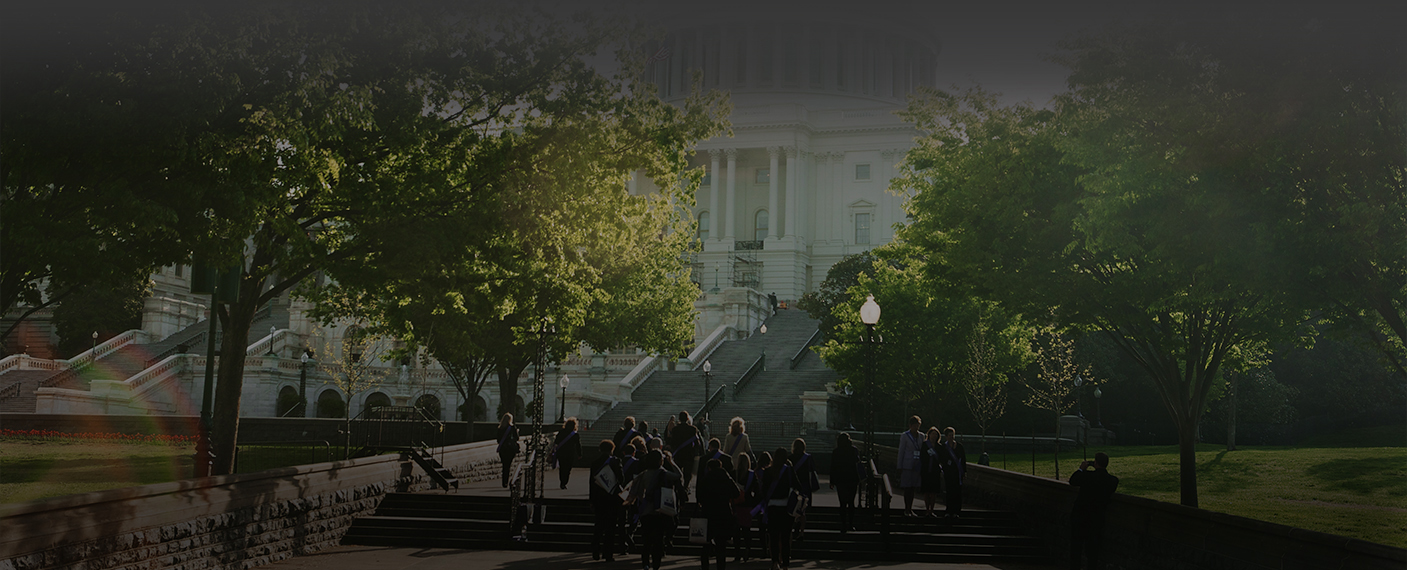Caroline Melo
Caroline Melo, 24, works on Capitol Hill. Her father was diagnosed with younger-onset Alzheimer's disease eight years ago at the age of 53.
How did your father end up receiving a diagnosis? How is he doing now?
My father was diagnosed when I was 15 years old. I was a freshman in high school, with a sister in her freshman year of college. Needless to say, I knew little of what this diagnosis would mean. He'd been exhibiting behavioral changes, confusion with words and some irrational behavior, so even though the diagnosis was tragic, it did bring some clarity to his actions and the situation. My dad is now in the last stages of the disease and lives in a nursing home.
Can you describe the impact the diagnosis has had on you and your family?
The diagnosis had a very large impact on my family, and still does. The disease has impacted us physically, monetarily and emotionally. Within a week of the diagnosis, my dad had to retire from his job and within a year was forced to stop driving. By my sophomore year of high school, we hired our first caregiver, and by the time I went to college, we had multiple caregivers caring for him 24 hours a day at our home. Emotionally, it has affected my mother, sister and me in ways we couldn't imagine.
Alzheimer's usually comes with a negative stigma along with an inaccurate picture of the disease to the public, causing many people to hide the tragedy they're experiencing. Alzheimer's is not merely a disease where one "misplaces their keys" or "leaves the oven on" —it's a disease that strips a person of their personality, gifts and dignity. Although my dad is still alive, the diagnosis was somewhat of a death. I'll never have my dad back. I'll never be able to have a conversation with him. He won't walk me down the aisle. He won't know his grandchildren.
How has working on the Hill helped your Alzheimer's advocacy efforts?
Working on Capitol Hill has opened my eyes to the legislative process as well as shown me that people can make a difference. Staffers really do take the time to listen to their constituents, research their topics and pass along the information they learn in a meeting to their superiors. In addition, meeting with a staffer can be just as effective as meeting with the members themselves. Staffers have a deep knowledge in their field and can be very instrumental in legislation.
How many Advocacy Forums have you attended?
I have attended two full forums, in 2012 and 2013, but was also able to participate in some events of the 2014 Forum.
What's your favorite part of the Forum experience?
I have two favorite parts. When I first came to the forum in 2012, I was blown away by the sense of community and comfort I felt. I'd never been surrounded by people that actually understood what I was going through. They didn't only give you a hug and say, "I'm sorry," but they could instead look you in the eye and feel your pain with you. There's something about the Forum that makes you say, "I'm not alone."
Secondly, I greatly enjoy the speakers. I've found the speakers are very substantive and helpful in advocacy efforts. When it comes to lobbying on the Hill, it's good to know the facts, what research is currently happening and what progress is being made with curing the disease. Forum speakers can be very helpful in knowing these things.
What would you say to someone who was considering attending the Forum but maybe wasn't sure?
Do it. I never thought I would attend something like the Forum, and it ended up changing my life and motivating me to move to D.C. and work on Capitol Hill. When you find yourself debating, think about what your loved one would want you to do. At the 2012 Forum, Maria Shriver said that she advocates for those who cannot advocate for themselves. She has a voice and she needs to use it. I know that that my dad would want me to fight for him and for a cure for Alzheimer's disease. So that's what I'm doing — I'm being his voice.
How do you feel your advocacy efforts, and those of fellow Forum attendees, have helped the cause?
Advocacy leads to awareness, and awareness leads to urgency. Urgency is what can lead to a cure. Over the past few years, I've seen a large growth in national awareness of the disease. This past year, Seth Rogen testified in front of the U.S. Senate Special Committee on Aging, "The Today Show" aired several segments on the disease, and the final touches were put on the Glen Campbell documentary. We might not have a cure yet, but the growing awareness is bringing us one step closer. The more people we see on the Hill during the Forum, the more knowledge of the disease we'll be able to spread.
Back to top
Back to Advocacy Stories


Join the conversation #ENDALZ #alzforum